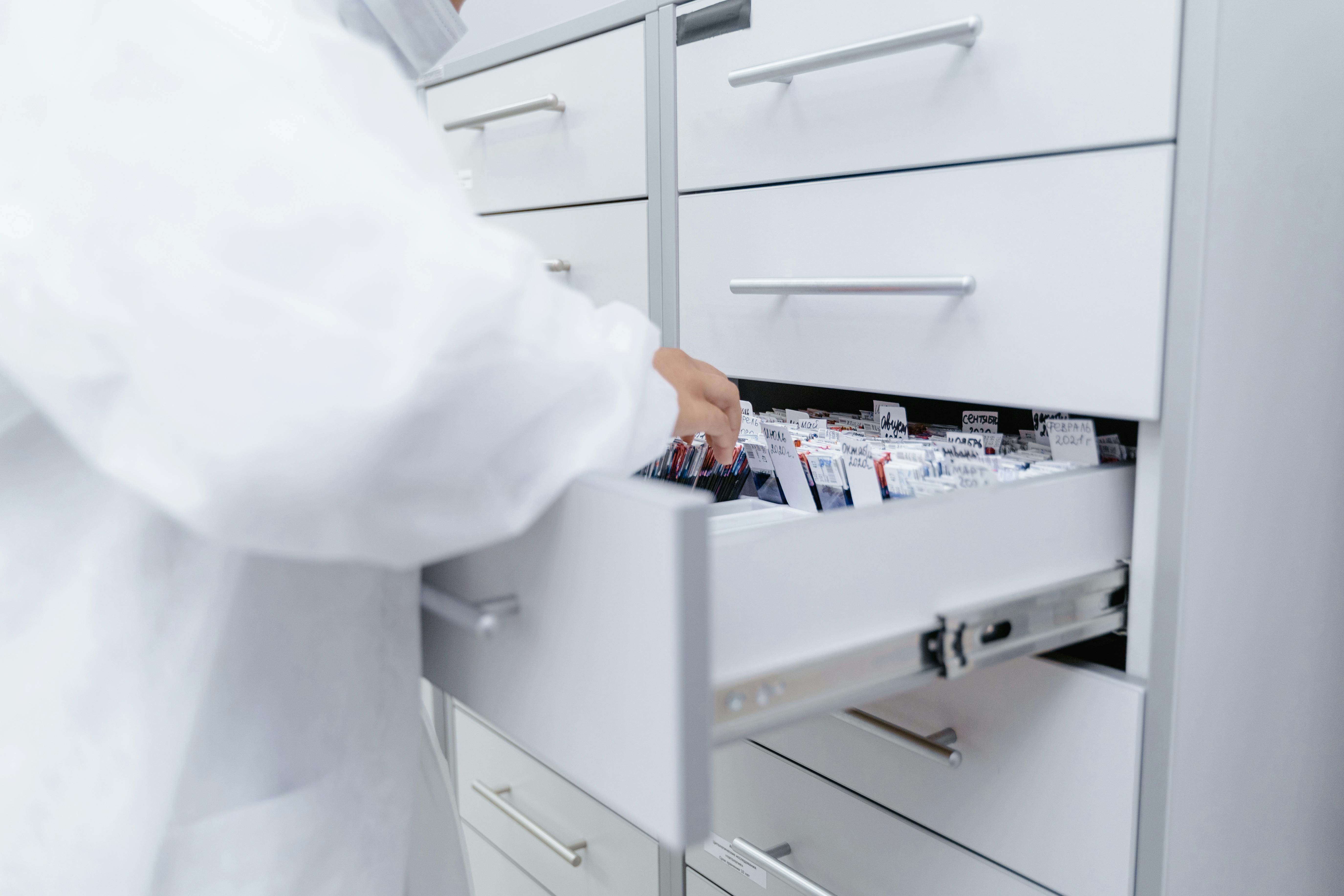.png)
IVF
IVF Didn’t Work For Me, Now What?
September 5, 2024
Last updated:
October 31, 2024
.png)
In vitro fertilization (IVF) is often seen as a beacon of hope for those struggling with infertility. However, the journey to parenthood through IVF isn't always straightforward, and for many, it can end in disappointment. If you're reading this because your IVF treatment didn't result in a successful pregnancy, know that you're not alone. At Cofertility, we understand the emotional toll this can take, and we're here to support you through this challenging time.
In this article, we'll explore the reality of IVF success rates, reasons why IVF might not work, and most importantly, what steps you can take moving forward. We'll discuss how to process your emotions, decide whether to continue treatment, and understand your options, including egg donation. We'll also walk you through what to expect after a failed IVF cycle and provide guidance on making the difficult decision to try again or explore other paths to parenthood. Our goal is to provide you with comprehensive, compassionate information to help you navigate this challenging phase of your fertility journey.
The reality of IVF success rates
Before we dive into next steps, it's important to understand that IVF failure is more common than many people realize. According to the Society for Assisted Reproductive Technology (SART), the average live birth rate for IVF across all age groups is around 30% per egg retrieval. This means that for about 70% of cycles, IVF doesn't result in a live birth.
These statistics aren't meant to discourage you, but to help you understand that if IVF didn't work for you, you're in the company of many others who have faced similar challenges. It's a difficult reality, but it's also an opportunity to reassess, regroup, and consider your options moving forward.
Reasons IVF doesn't work
Understanding why IVF might not have been successful can be crucial in deciding your next steps. While every situation is unique, here are some common reasons why IVF cycles may not result in pregnancy:
- Age factor: As women age, both the quantity and quality of eggs decrease, making the number of viable embryos per cycle fewer.
- Embryo quality: Sometimes, even if fertilization occurs, the resulting embryos may not be of high enough quality to implant successfully.
- Implantation issues: In some cases, the uterine environment may not be receptive to embryo implantation.
- Genetic factors: Chromosomal abnormalities in embryos can prevent successful implantation or lead to early miscarriage.
- Underlying health conditions: Certain medical conditions, such as endometriosis or autoimmune disorders, can affect IVF success rates.
- Lifestyle factors: Smoking, excessive alcohol consumption, and being significantly overweight or underweight can all impact IVF success.
- Unexplained factors: Often, despite everything appearing to be optimal, IVF still doesn't result in pregnancy for reasons that aren't fully understood.
What to do when IVF doesn't work?
1. First, process and give yourself time to grieve
The emotional impact of a failed IVF cycle shouldn't be underestimated. It's completely normal and valid to feel a range of emotions - disappointment, anger, sadness, or even a sense of loss. It is so important to acknowledge these feelings and give yourself time to process them.
Consider the following steps:
- Allow yourself to feel: Don't try to suppress your emotions. It's okay to cry, to be angry, or to feel whatever you're feeling.
- Seek support: Talk to your partner, friends, or family. Consider joining support groups or speaking with a therapist who specializes in fertility issues.
- Practice self-care: Engage in activities that bring you comfort and joy. This might be anything from reading a book to taking a relaxing bath or going for a walk in nature.
- Take time off if needed: If possible, take some time off work or reduce your commitments to focus on your emotional wellbeing.
Remember, there's no set timeline for grieving. Be patient with yourself and take the time you need.
2. Then decide if you want to keep trying with IVF
After you've had time to process your emotions, the next step is to consider whether you want to continue pursuing fertility treatments. This is a personal decision that depends on various factors, including:
- Your emotional readiness
- Your financial situation
- Your age and overall health
- Your doctor's recommendations
- Your personal values and beliefs
It's important to have open and honest conversations with your partner (if applicable) about your feelings and expectations moving forward. Remember, it's okay if you're not on the same page immediately - these discussions often take time.
3. Know your options, including egg donation
If you decide to continue your fertility journey, it's important to understand all your options. These may include:
- Trying another round of IVF
- Exploring egg donation
- Looking into embryo adoption
- Considering traditional adoption
- Choosing to live child-free
At Cofertility, we specialize in egg donation and believe it can be a wonderful option for many individuals and couples. Egg donation can significantly increase the chances of a successful pregnancy, especially for those who have had multiple failed IVF cycles or who are of advanced maternal age.
Our unique Split program allows intended parents to receive half of the eggs retrieved from a donor, while the donor keeps the other half for her own family-building journey. This approach not only makes egg donation more accessible but also creates a special connection between donors and recipients.
What is the process after a failed IVF?
If you decide to pursue further treatment after a failed IVF cycle, the process typically involves the following steps:
- Follow-up consultation: Your fertility doctor will review your cycle in detail, discussing what went well and what could be improved.
- Additional testing: Your doctor may recommend further tests to identify any issues that might have contributed to the unsuccessful cycle.
- Treatment plan adjustment: Based on the review and any new test results, your doctor may suggest modifications to your treatment plan. This could involve changes in medication, different timing, or alternative options like egg donation.
- Mental health support: Some clinics offer counseling services or can refer you to mental health professionals specializing in fertility issues.
- Physical preparation: If you decide to try again, you may choose to wait for a certain period to allow your body (and mind) to recover. Use this time to focus on your overall health and wellness.
Looking ahead with hope
Regardless of the path you choose, know that there is hope. At Cofertility, we've seen many individuals and couples find their way to parenthood through various means, including egg donation. We've also supported those who have chosen to embrace a child-free life and find fulfillment in other ways.
If you're considering egg donation as your next step, we're here to guide you through the process with compassion and expertise. Our team understands the challenges you've faced and is committed to providing you with the support and information you need to make the best decision for your family.
Remember, your worth is not defined by your fertility journey. You are strong, resilient, and deserving of support and love, regardless of the outcome of your IVF treatment. Whatever you decide, we at Cofertility are here to support you every step of the way.


Dr. Meera Shah
Meera Shah, MD, FACOG, is a double board-certified OBGYN and reproductive endocrinology and fertility specialist at NOVA IVF in Mountain View, California. She is a Founding Medical Advisor at Cofertility. Dr. Shah has authored numerous research articles on topics ranging from fertility preservation, pregnancy loss, reproductive genetics, and ethnic differences in IVF outcomes. Her medical practice incorporates the highest level of evidence-based medicine and the most cutting edge technologies to optimize outcomes for her patients. Dr. Shah applies this approach to her work with Cofertility, ensuring that Cofertility remains up-to-date on latest medical advancements and research in third-party reproduction and reproductive endocrinology in general. When Dr. Shah isn’t busy working with her patients at NOVA IVF, she enjoys playing pretty much any sport, learning new piano pieces on YouTube, and spending quality time with her husband and three boys. You can find her on Instagram providing fertility-related advice and education at @dr_meerashah.
Read more from
Dr. Meera Shah








